Building on excellence and partnerships
In our research, we integrate engineering with biology and medicine to develop coherent solutions to medical problems. Our main focus lies on chemical biology, regenerative engineering & materials and biomedical imaging & modelling. Next to these cross-disciplinary areas, we intensify our research by adopting the newest insights in machine learning and artificial intelligence and the broader perspective of immuno-engineering. Our state-of-the art facilities, shared among all disciplines, enable our researchers to strive for scientific excellence in a most innovative environment.
The department of Biomedical Engineering can compete with other top institutions with high quality publications in the best journals, with high citation impact.
Regenerative Engineering and Materials
The research of the cluster is mostly basic and applied, focusing on adaptation, remodeling, growth, damage and repair in cells and tissues. We apply a combination of principles from fluid and solid mechanics, cell biology, immune-engineering and biophysics. Outcomes are translated into advanced medical interventions based on tissue engineering and materials for regenerative medicine, mainly in the areas of cardiovascular and musculoskeletal systems.
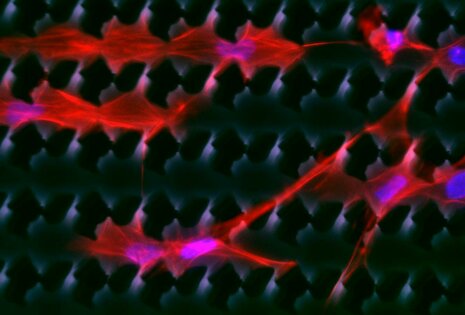
Biointerface Science
Research at BiS is dedicated to understanding and applying basic cell biological principles at the biointerfaces especially for regenerative…
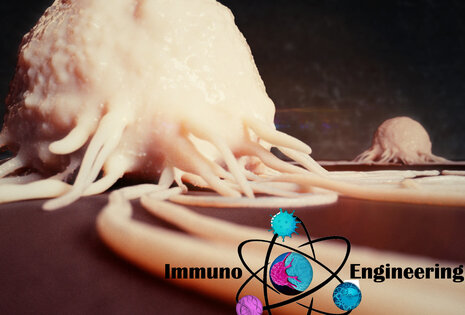
Immunoengineering
The human immune system is highly multifaceted and incredibly fascinating. Immune cells typically act in complex microenvironments which has…
![[Translate to English:] [Translate to English:]](https://assets.w3.tue.nl/w/fileadmin/_processed_/b/9/csm_csm_ValveExpSim_Sandra_94a8f133a8_6cb3f206d9.jpg)
Modeling in Mechanobiology
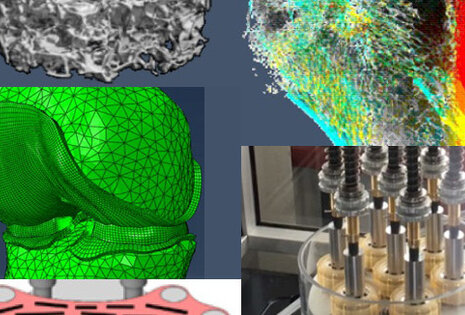
Orthopaedic Biomechanics
We explore and develop (regenerative) treatment strategies for orthopaedic injuries and disorders based on a thorough understanding of…
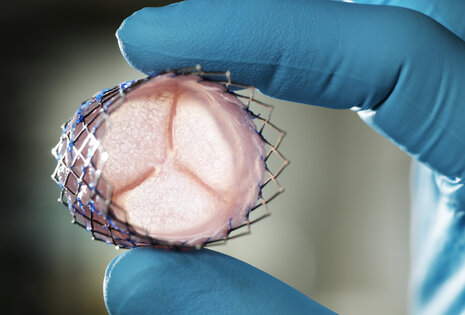
Soft Tissue Engineering and Mechanobiology
At STEM we aim to understand and predict how mechanical factors influence soft tissue growth, remodelling, damage, and repair. We use this…
Chemical Biology
Within this cluster issues in biomedical engineering are approached on a molecular basis using the interplay of organic chemistry, biochemistry, polymer chemistry physical chemistry and chemical physics. Using these disciplines biological processes as well as the interactions between synthetic and living matter are studied at the level of molecules and used as a source of inspiration for the design and synthesis of new drugs and biomaterials.
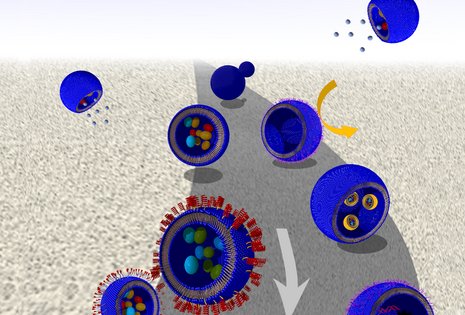
Bio-Organic Chemistry
In our research we combine techniques from protein engineering, polymer chemistry and bioconjugation approaches to create particles with…
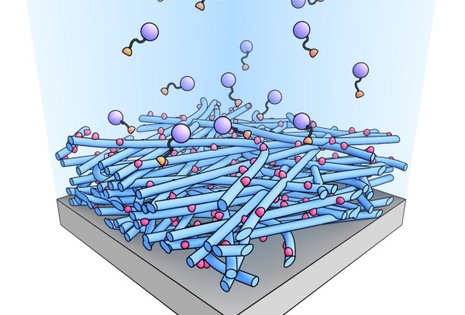
Biomedical Materials and Chemistry
To provide material solutions for regenerative medicine through development of functional biomaterials based on supramolecular chemistry.
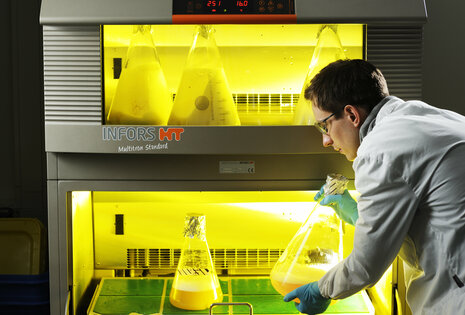
Chemical Biology
The Chemical Biology group is a research group within the department of Biomedical Engineering. The group is supervized by Prof.dr.ir. Luc…
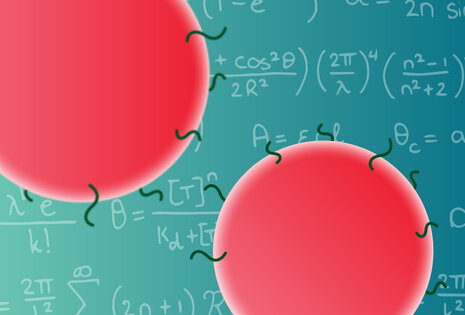
Molecular Biosensing
The MBx group develops technologies based on micro- and nanoparticles for monitoring patients and for treating diseases. Towards this goal,…
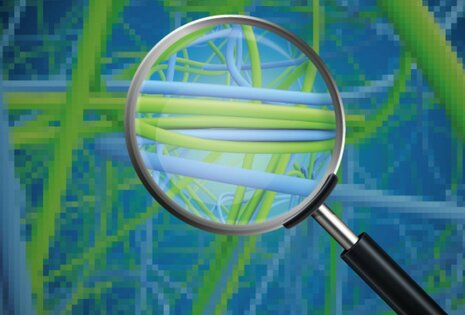
Nanoscopy for Nanomedicine
We use advanced microscopy techniques such as super-resolution imaging to understand the structure of synthetic nanomaterials in vitro and…
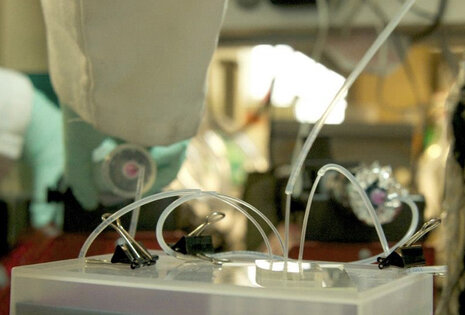
Precision Medicine
The Precision Medicine group focuses on designing and evaluating nanotherapeutics that regulate the immune response to treat a range of…
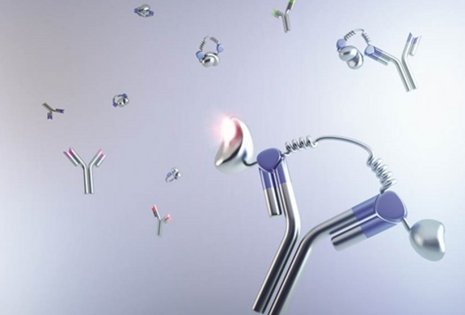
Protein Engineering
protein engineering, biosensors, point-of-care diagnostics, bioluminescence, synthetic biology, chemical biology
Biomedical Imaging & Modelling
Within this cluster methods and techniques from e.g. mathematics, computer science, physics, and medicine are used in medical imaging, image analysis, and modelling and interpretation of biomedical systems. In both research and clinical diagnostics these methods are applied to understand the workings of the human body, and to accurately predict the application of medical interventions.
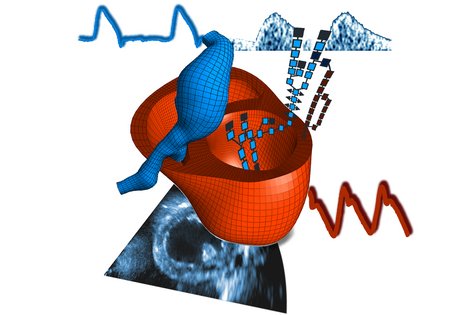
Cardiovascular Biomechanics
cardiovascular, experimental & computational biomechanics, heart, blood vessels, (cardio)vascular disease, aneurysms, arteriosclerosis,…
![[Translate to English:] [Translate to English:]](https://assets.w3.tue.nl/w/fileadmin/_processed_/0/c/csm_main_image_CBio_cf66a79dc0.jpg)
Computational Biology
Constructing computational models to improve the knowledge of diseases, biomedical processes and structures.
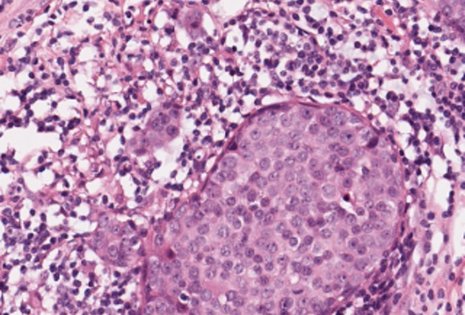
Medical Image Analysis
Developing methods and applications for medical imaging, to improve clinical care. medical imaging, acquisition, image reconstruction,…
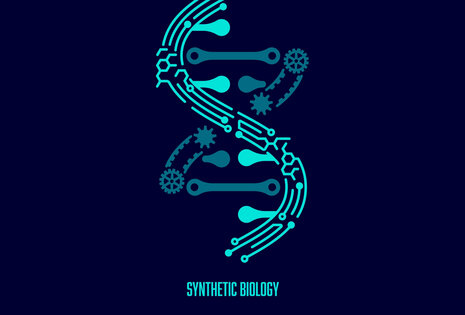
Synthetic Biology
We develop living technologies based on synthetic biology to tackle important societal problems including the development of DNA data…
Research Collaboration
Our research has already led to many public-private partnerships and spin-offs where we have proven to be successful in building ecosystems in close collaboration with our academic, industrial and governmental partners.
The collaborations within the TU/e can be find in this overview.
Examples of our broader collaborations:
- Regenerative Medicine crossing borders (Regmed XB; Leiden, Utrecht, Maastricht and Leuven)
- The Utrecht-Wageningen-Eindhoven alliance on synthetic biology,
- The Center for Translational Immunology together with Radboud UMC on pre-clinical and translational research,
- Our long-term research and education partnerships with for example Eurotech, Wyss Institute at Harvard, Max Planck Institutes, and Institute for Bioengineering of Catalonia (IBEC).
Contact
-
Contact
Departmental BoardGemini-south 1.105 -
Visiting address
Department of Biomedical EngineeringGemini South and NorthBuilding number 15Groene LoperTU Eindhoven -
Postal address
Department of Biomedical EngineeringPO Box 5135600 MB Eindhoven -
Study information